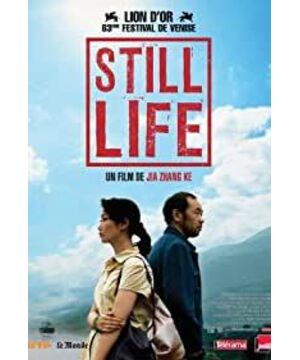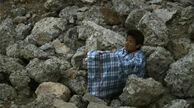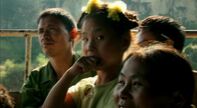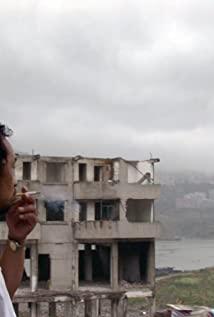It is obviously unconvincing to infer Jia Zhangke's ignorance of the living conditions of the Three Gorges people just because he is a Shanxi native. I would rather believe that this is his deliberate restraint. At the old site of Fengjie Old Town, Huang Mao, the driver of the motorcycle, pointed at Gaoxia Pinghu Lake and said, "Did you see that boat parked there? My house was originally there, and it was long gone." At the demolition office, A government worker surrounded by immigrants said, "How can there be no problem? A city of more than 2,000 years has been demolished in two years." Such emotionally obvious words flashed through the film, but they were used in many In the use of the lens, there seems to be a thousand words of sighs - this is Jia Zhangke's cleverness. What the sound cannot express, the picture can reach, and the film can be released to the public.
However, this is also the reason why "The Three Gorges Good Man" is disappointing. Excessive restraint weakens the characteristics of the entire film, and it loses its due responsibility. Replacing Fengjie with any small city with rapid urban development at the moment will not affect the whole story too much. Although it is titled "Three Gorges", except for scenes and some bridges (for example, Han Sanming and his co-workers get to know each other's hometown through the Kuimen and Hukou Waterfalls on the RMB pattern), the film does not really let people see it. In the face of this unprecedented project, those who have lived in Sri Lanka for generations, how their lives have been changed, and how do they adapt to this process. Perhaps such requirements are a bit harsh, but a movie that panoramically depicts the living conditions of the people in the Three Gorges can be regarded as an "epic blockbuster" in another sense. The victory or defeat of the Three Gorges Project has yet to be decided, but because of it, the lives of millions of people have been completely changed, and this film can actually have greater ambitions.
The English name of the film is Still Life, and there are two kinds of understandings: a frozen life or a life that has to go on. Perhaps this English title represents what Jia Zhangke really wants to express. Just like when her house was about to be demolished, the mother of Han Sanming's daughter classmate said, I might go to Guangdong, but it's impossible for both of them to die here. There is helpless pain, but there is also the determination to face the suffering, and the hope of the world is here, even if it is so meager. Living in such an era, apart from the false comfort brought by hope, what else can we have? At the end of the film, in order to take his ex-wife with him, Han Sanming promised the boat boss to repay his wife and brother-in-law's 30,000 yuan debt within a year. With an income of 200 yuan a day, returning to his hometown in Shanxi to dig coal is his only hope, and it has also become the hope for the workers to change their lives. When he came to the river, he turned his head, and in the distance was a ruin. The connection between the two dilapidated buildings in the ruins was the weak wire rope in the sky, and a person was staggering on it.
That person is Han Sanming, his co-workers, and every one of us. Hope is ahead, but we may not be able to get past it.
View more about Still Life reviews










